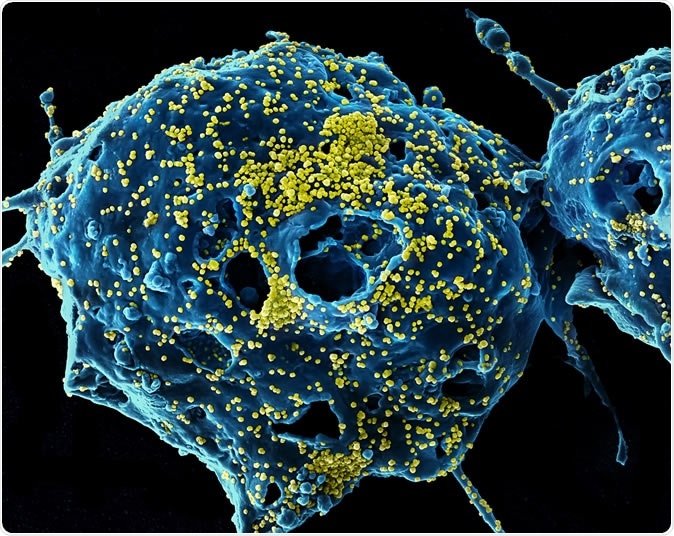There have been studies that have revealed that men are more likely to get more severe symptoms from COVID-19 disease and also more likely to die from complications of the disease. A new study corroborates these findings. The study titled, “Gender differences in patients with COVID-19: Focus on severity and mortality,” is published in the latest issue of the journal Frontiers in Public Health.
What was this study about?
The COVID-19 pandemic caused by severe acute respiratory syndrome coronavirus 2 (SARS-CoV-2) has been raging across the world and has already over 216,000 people. The disease is particularly dangerous for the elderly. In addition, experience has shown it is more serious in those with severe comorbid conditions such as high blood pressure, diabetes, heart disease, kidney disease, etc. With the rising number of cases, there has been an overwhelming effect on the existing healthcare system.
Dr. Jin-Kui Yang, a physician at Beijing Tongren Hospital in China and lead author of the study, said that he had noticed a definite male trend among the dying patients. Those with heart disease, respiratory disease, and male patients were more likely to die, he said. He explained, “Early in January, we noticed that the number of men dying from COVID-19 appeared to be higher than the number of women. This raised a question: are men more susceptible to getting or dying from COVID-19? We found that no-one had measured gender differences in COVID-19 patients, and so began investigating.”
What was done in this study?
Researchers explain that what is unknown is the reason why some individuals are more at risk of getting severe COVID-19 and dying of the disease compared to others. This new study looks for the first time at the gender differences in COVID-19 infection as well as the likelihood of dying due to the disease.
The objective of the study was to “compare the severity and mortality between male and female patients with COVID-19 or SARS”. For this study, the researchers extracted data from three sources. These were:
- A case series where 43 hospitalized patients had been treated for COVID-19.
- A public health data set where there were 1,019 survivors of COVID-19 and 37 deaths due to the disease, all from China.
- A data set including 139 deaths seen in Beijing out of 524 patients who suffered from SARS during the SARS outbreak in 2003. This data was included because the SARS virus is a close congener of the novel coronavirus SARS-CoV-2.
What did the study find?
The study reveals that both men and women are equally at risk of getting infected with SARS-CoV-2, and men are more at risk of suffering the severe effects of COVID-19 disease caused by SARS-CoV-2 and also more at risk of dying of the infection. Older men with underlying diseases are more at risk because of their age, as well as their gender, say the researchers. They wrote, “Older age and a high number of comorbidities were associated with higher severity and mortality in patients with both COVID-19 and SARS.”

MERS Virus Particles Colorized scanning electron micrograph of Middle East Respiratory Syndrome virus particles (yellow) attached to the surface of an infected VERO E6 cell (blue). Image captured and color-enhanced at the NIAID Integrated Research Facility in Fort Detrick, Maryland. Credit: NIAID
Among all the three data sets, the researchers looked at, the data from men and women remained similar, the team found. In the first set of data from the case series, male patients were found to have more severe symptoms than females. From the public health data set from COVID-19 patients in China, it was found that men were 2.4 times more likely than women to die of the infection. While the fatality rate was 70.3 percent among men, it was 29.7 percent among the women. In the third data set on SARS patients, it was found that male patients were more likely to die compared to females.
The novel coronavirus has spike-like proteins on its surface, and this binds to the ACE2 receptors on the host cells and gains entry into the cell. The researchers noted that men dying from SARS and COVID-19 had higher levels of ACE2. This protein is involved in the viral attack of the host cells. Those with diabetes and heart disease also have higher levels of ACE2 and thus have worse outcomes in COVID-19.

SARS-CoV-2 viruses are binding to ACE-2 receptors on a human cell, the initial stage of COVID-19 infection. Conceptual 3D illustration credit: Kateryna Kon / Shutterstock
Conclusions and implications
The authors concluded, “Male gender is a risk factor for worse outcomes independent of age and susceptibility in patients with COVID.” Older men with underlying diseases were more at risk, the authors said. They call for more research in this arena to explore the exact reason why men are more at risk. They acknowledged that this was a small study and just a preliminary indication can men are more at risk of severe COVID-19 and death. Yang said, “We recommend that additional supportive care and prompt access to the intensive care unit may be necessary for older male patients.”
Journal reference:
Gender differences in patients with COVID-19: Focus on severity and mortality, Jian-Min Jin, Peng Bai, Wei He, Fei Wu, Xiao-Fang Liu, De-Min Han, Shi Liu and Jin-Kui Yang, doi: 10.3389/fpubh.2020.00152, https://www.frontiersin.org/articles/10.3389/fpubh.2020.00152/full